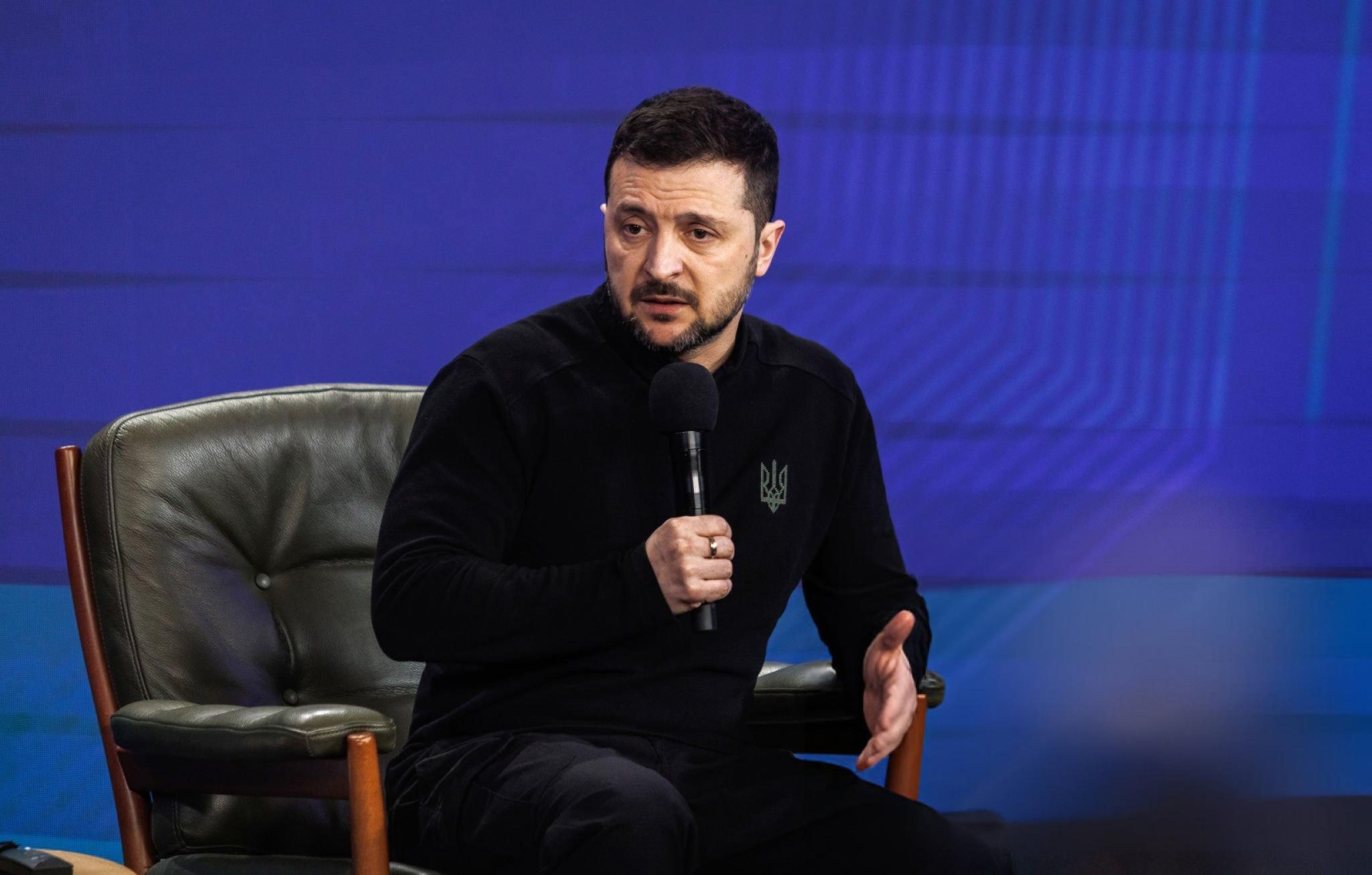Ireland’s Taoiseach Micheál Martin is set to participate in a high-level virtual meeting organised by Ukrainian President Volodymyr Zelensky to discuss Ukraine’s future. The meeting, scheduled for the third anniversary of Russia’s invasion, comes at a critical time for European security and diplomatic relations between the US and its allies.
The discussions follow a tumultuous week in international politics, particularly after former US President Donald Trump made a controversial statement branding Zelensky a “dictator” and appearing to blame Ukraine for the war. Trump’s remarks have raised fresh concerns about the US’s commitment to Ukraine as Europe grapples with the ongoing crisis.
Martin has reaffirmed Ireland’s unwavering support for Ukraine, stating that the meeting is an opportunity to reinforce Ireland’s commitment to helping Ukraine achieve a “just, sustainable, and durable peace” in line with UN principles. He will also advocate for accelerating Ukraine’s accession to the European Union as a means of securing the country’s future stability.
“At this very difficult and uncertain moment for the people of Ukraine, this meeting sends a strong message of support,” Martin said. “Ireland stands ready to do all we can to help secure a just and lasting peace, not only for Ukraine but for the security of Europe as a whole.”
Diplomatic tensions and Ireland’s role
The meeting follows recent US-Russia discussions in Saudi Arabia aimed at negotiating an end to the conflict. However, Ukraine was excluded from these talks, a decision that President Zelensky has strongly criticised. The Ukrainian leader has stated that his country will not accept any agreement reached without its direct involvement.
The Irish government has echoed these concerns, insisting that a fair and sustainable peace cannot be achieved without Ukraine’s full participation. Deputy Premier and Minister for Foreign Affairs Simon Harris reinforced this stance, rejecting the notion that an actual peace process is currently underway.
“I don’t think we can buy into the premise that there’s a peace process under way,” Harris said. “Ukraine cannot be sidelined in discussions that shape its future.”
Ireland’s neutrality and defence policy
While Ireland remains militarily neutral, there has been ongoing debate over its role in international peacekeeping efforts. Harris is set to present proposals to the Irish Cabinet aimed at revising the country’s “triple lock” policy, which currently limits the deployment of Irish Defence Forces personnel on peacekeeping, crisis management, and evacuation missions.
Under the existing system, Ireland cannot deploy more than 12 troops abroad without a UN Security Council resolution. However, since the Security Council includes veto-wielding powers such as Russia and China, critics argue that this requirement hampers Ireland’s ability to contribute to peacekeeping missions.
In April, the Irish Cabinet approved an amendment to the Defence Bill to remove this veto constraint, provided any deployment is approved by the Irish Government and the lower house of Parliament. Pre-legislative scrutiny of the amendment by the foreign affairs committee is now underway.
Harris defended the proposed change, stating that it would strengthen Ireland’s ability to act independently while maintaining its commitment to international law.
“This would remove the veto power of the UN Security Council’s permanent members over Ireland’s international engagement while safeguarding our alignment with international law,” he said. “It would allow us to continue Ireland’s proud peacekeeping tradition.”
Despite this shift, Harris emphasised that Ireland remains committed to military neutrality and will not participate in any military alliances.
“This is not an attempt to disengage from the UN,” he clarified. “Instead, it allows Ireland to seek improvements within the UN system while maintaining our traditional stance of non-alignment.”
Ireland’s commitment to peacekeeping
Ireland has a long-standing reputation in international peacekeeping, but no new missions have been approved under the UN framework since 2014. The proposed changes to the triple-lock system aim to ensure Ireland’s peacekeeping efforts remain effective in an evolving global security landscape.
As the conflict in Ukraine continues, Ireland’s participation in discussions with President Zelensky and other world leaders signals its commitment to upholding European security and supporting Ukraine’s path towards peace and stability.






